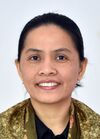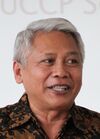Our Asia division, together with our regional office in Pematangsiantar, North Sumatra, coordinates cooperation between UEM member churches in the Asian region. The Asian division maintains contact with the churches in the region as well as with Christian councils, other church organisations, and local cooperation partners, and organizes joint Asian programmes.
Thematically, joint programmes focus on such issues as training for pastors and church staff in pastoral care, dialogue with people of other faiths, microcredit and other socio-economic development projects, lobbying for human rights, sustainable agriculture, and reconstruction projects after natural catastrophes.
25.04.2024
UEM Asia Regional Board meets in Sidikalang, Indonesia
16.04.2024
Naomi Simanjuntak new Volunteer at UEM
27.03.2024
Easter Message by the UEM General Secretary Andar Parlindungan
04.03.2024
Volker Martin Dally enters retirement
27.02.2024
Winter School 2024 in Kandy, Sri Lanka




IBAN: DE45 3506 0190 0009 0909 08
SWIFT/BIC: GENODED1DKD
![]() spenden@vemission.org
spenden@vemission.org
![]() 0202-89004-195
0202-89004-195
![]() info@vemission.org
info@vemission.org
![]() 0202-89004-0
0202-89004-0
![]() presse@vemission.org
presse@vemission.org
![]() 0202-89004-135
0202-89004-135